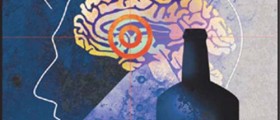
Caffeine addiction symptoms
Caffeine addiction
All over the world, coffee and tea are the beverages that people consume the most. People in China have been consuming tea for thousands of years. Some of the first coffeehouses in Europe were opened in the 17th century and from that time people have enjoyed coffee. When it comes to coffee, there are lots of ingredients in it but the most important chemical substance is known as caffeine. This substance is also a part of the guarrana berries, black and green tea, Kola nuts and cacao beans. Since caffeine is a stimulating agent it has some psychotropic effects on the brain of a person who intakes it. When a person consumes caffeine, his or her heart and respiration are stimulated. People were not aware that caffeine can be addictive until some researches were conducted. These researches proved that caffeine is an addictive substance. Only in the United States 90% of all people consume caffeine every single day and the average amount of this substance that a person intakes every day is 280 mg. People get this substance into their system by consuming coffee, tea or some soft drinks. However, in some parts of Europe amount of caffeine intake is even greater. There are still some that disagree that caffeine is addictive but the withdrawal symptoms after a person stops consuming it are obvious.
Some experts even say that a person can get addicted after just one cup of coffee. A person will be in more danger if he or she drinks more than one cup of coffee every day. It will be harder for people who consume more than five cups of either coffee or tea to stop consuming caffeine.
A person who intakes caffeine may experience several effects that do not last for a long period of time like increased heart beat, the relaxation of smooth muscles and a heightened production of stomach acid and urine. Caffeine addiction symptoms
There are still no ways a doctor can determine whether a person is addicted to caffeine or not. However, there are a couple of things that confirm that caffeine can cause addiction. The first apparent aspect are withdrawal symptoms. These symptoms will vary from person to person. A person who is more addicted will experience harder withdrawal symptoms. Some of the symptoms are headache, fatigue and drowsiness. However, a person may also experience mood changes like depression or irritability. Nausea and vomiting may be present as well. The second aspect that confirms addiction is increased tolerance to the substance. Apart from the physical addiction to this substance, people also develop a mental and psychological dependency as well.

















Your thoughts on this
Loading...